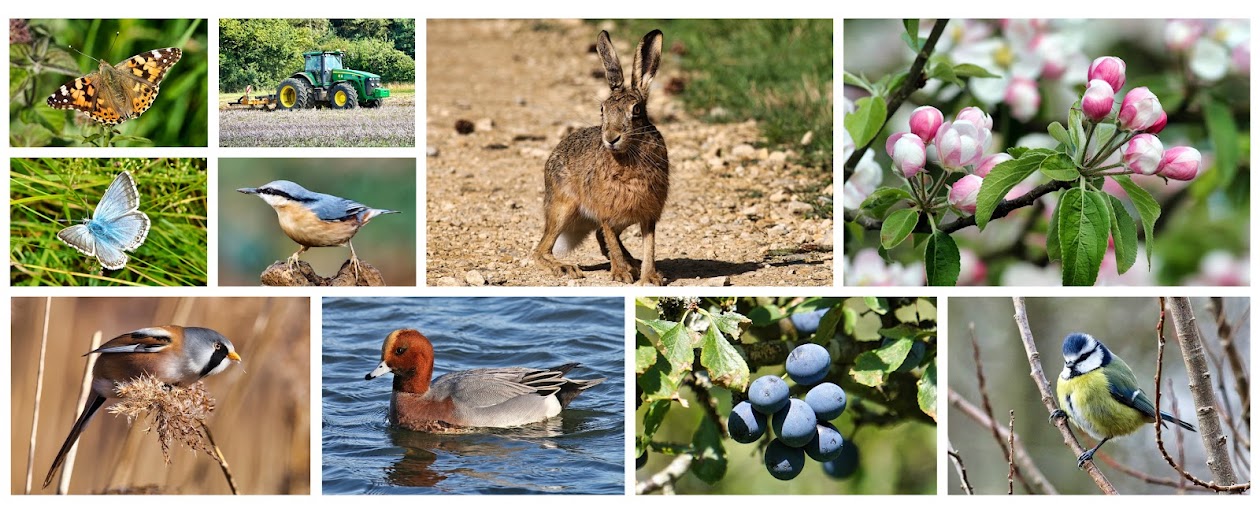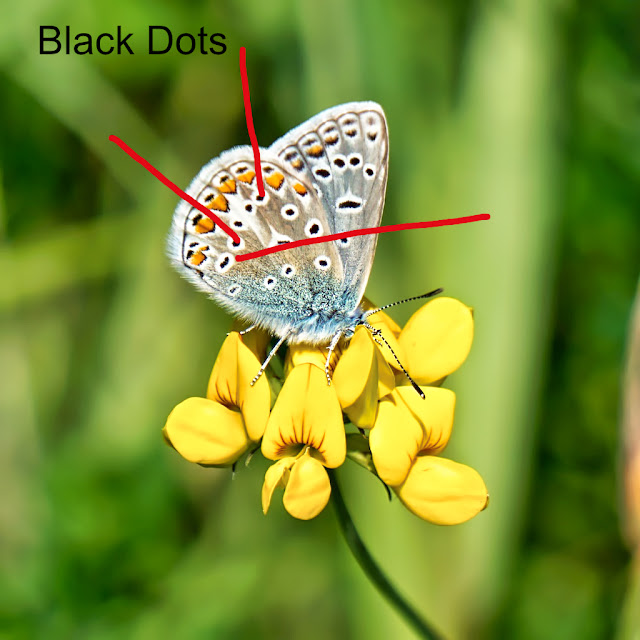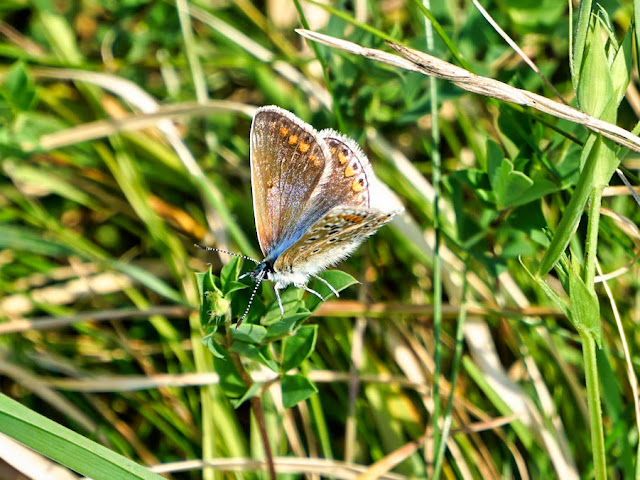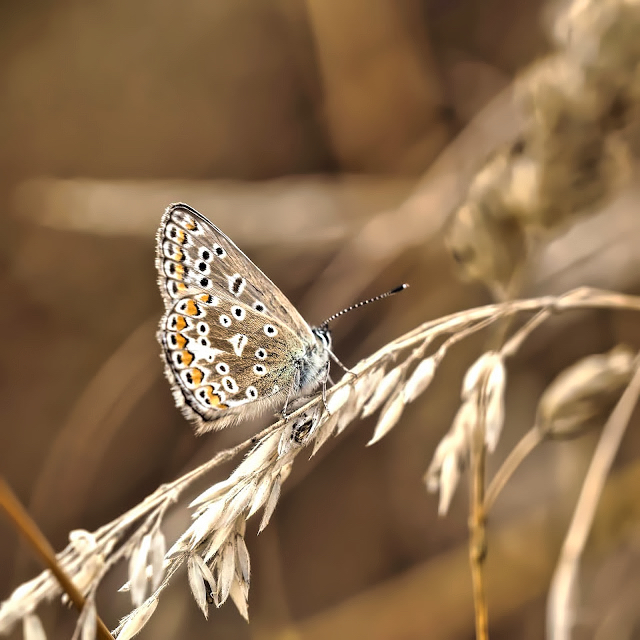The Common Blue Butterfly is as the name suggests, common in UK and can be found just about anywhere.
During the season it has two broods, one from May to June and one from July to October.
The first two images below are of a typical male of the species showing the underwings.
On the second image below, note the specific black dots which is a typical marking.
The general background colour is light brown to pale grey.
The following three images are of a typical female of the species .
Note the much darker brown on the underwings and mostly brown on the upper wings.
Also displayed are the similar black dots.
The two images below were taken by me on 20th July 2023 on a footpath on the Northern edge of Dorchester, the county town of Dorset.
When I took the shots at first, I believed it to be a female Common Blue.
Not having noticed the blue upper wings, I continued on with my walk.
However, when loading the images on the computer I noticed the blue upper wings.
I also realised that there were no black dots inward from the orange dots on the underwings.
I have sought more expert advice and initially it is considered to be a male Common Blue 'Aberration' with the sub name of Obsoleta.
I may have further information about this in due course.








Hi Roy,
ReplyDeleteStunning images. And I think you captured a Aricia eumedon .I have never seen one!
Regards, Maria
Thanks for that info Maria.
DeleteThat’s fascinating! I guess if an aberration is thrown into the mix, it causes confusion! I sometimes find it hard to tell the difference between the Holly Blue and the Common Blue when they are flitting about in the garden! It’s the same with the Meadow Brown and Gatekeeper! But I am heartened, as we are seeing more butterflies right now.
ReplyDeleteThanks Sal. Yes there are more about now.
DeleteHei Roy! Upeat valokuvat sinisiivestä. Kiitos tunnistamis vinkeistä. Niitä on tosi vaikea tunnistaa! Sinisiipiä on aivan liian montaa lajia.
ReplyDeleteKiitos Anne. se on miinakenttä.😀
DeleteThat’s interesting! I look forward to hearing more. IDing can be hard when there are oddities like this about!
ReplyDeleteMandy
Thanks Mandy.
DeleteLes identifications des Argus sont quand même très compliqué parfois.
ReplyDeleteMais tes photos sont toujours aussi belles Roy.
À bientôt et bel après midi ☀️
Merci beaucoup chère Nathalie.
Deletelovely photos Roy. Speckled wood confuses me as it can be very varied in the colour
ReplyDeleteThanks Pete. It can be different dependent on where it resides. I found that woodland residents are different than more open areas. It also depends on which brood as well.
DeleteBonsoir Roy. Je découvre ton blog par l'intermédiaire de celui de Nathailes. Il y a de très belles photos ici, comme je les aime. Ce papillon est magnifique, je ne le connaissais pas. A bientôt, Roy, je reviendrai. :-)
ReplyDeleteBonjour Françoise.
DeleteMerci d'avoir visité mon blog.
Super de vous entendre.
Hi Roy!!! Very beautiful pictures... Happy weekend
ReplyDeleteThanks Ana.
Delete